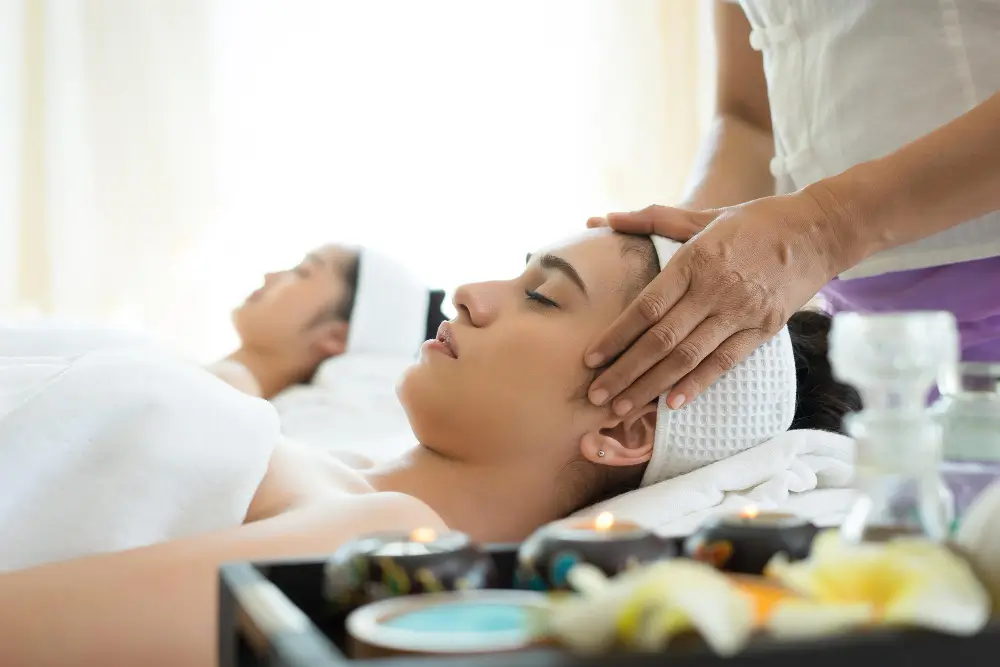
1. SiroAbhyangam (Head Massage)
Shiro abhyanga involves massaging the head, neck and shoulders with warm herbalised oil to calm and balance your mind and nervous systems.
2. Steam bath (bashpa swedanam)
An Ayurvedic steam bath is a simple and effective therapy to cleanse the body of toxins. A herbal steam bath involves sweating caused by steam. Such a steam bath can help remove toxins from the body. It is a part of the cleansing therapy done after a massage
3. Kizhi(poultice)
It is an Ayurvedic treatment in which warm poultices filled with herbal oils, powder or medical concoctions are applied and massaged over the body. The natural healing herbs are crushed and bundled into muslin cloth to make lizhi/poulthices.
4. Nasyam
Nasyam is a panchakarma treatment for body cleansing used in Ayurvedic medicine. Administration of drugs by the route of nasal cavity is termed as nasya.
5. Dhara
It is one of the major oil therapies in Ayurvedic treatment. In this continual pouring of warm medicated oil or a herbal decoction over the body is done.
6. Pizhichil
It is a suclation therapy in which the warmed oil is poured all over the body or a specific part of a stipulated period in a specific manner. Throughout this therapy, the body is exposed to streams of luke warm oil with soft massage and rhythmic hand movement. In this process, fixed size linen clothes are dipped in tolerably hot oil or paste and squeezed from a certain height on the patient’s body.
7. Udvarthanam
Udvarthanam is special therapeutuic deep tissue massage using herbal powders. Udwarthanam means to elevate or to promote. This massage involves upward stroking, where the powder is rubbed forcibly on the body.
8. Dhoopanam (Fumigation)
Dhoopanam is an Ayurvedic therapy used for preventive and treatment purposes. In dhoopanam the course powder of the herbs is mixed with honey, ghee etc., liquids. It is put on fire and the fames are increased by fanning. There fames are directed with the help of a cone or a cylinder made of inetals or mud. The particular part of the body is exposed for sufficient amount of time depending on the disease.
9. Vasti (Kati Vasti, Janu Vasti, Greeva Vasti)
Vasti means to hold. In vasti the warm medicated oil is poured over the affected part (kati, janu, greeva) and retained inside a well sculpted from black gran paste for the required duration (Kati means lower back, Janu means knee joint and greeva means neck).